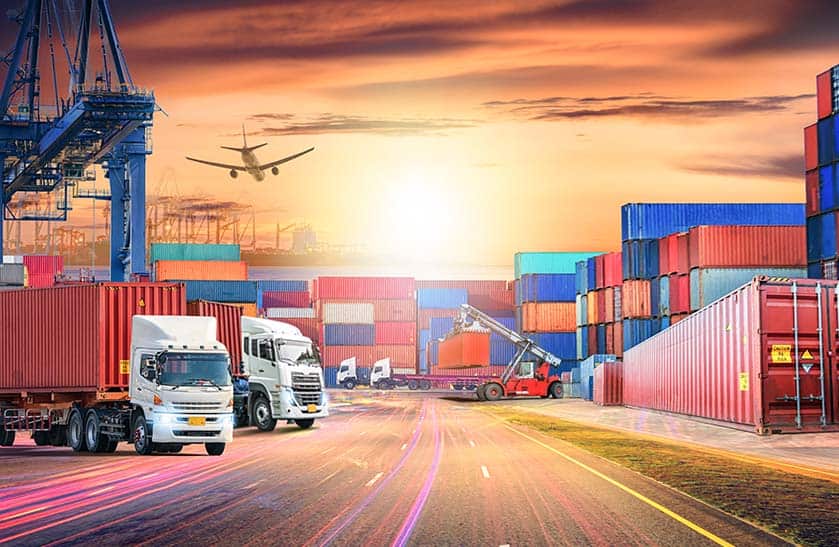
A supply chain refers to a chain or network of companies ranging from suppliers to end-users. Logistic service plays an important role in a supply chain where it implements and controls the efficient flow and storage of goods, services and information within and between companies in the supply chain. In this article, we will discuss the relevant legislations and regulatory framework governing supply chain in Malaysia.
The relevant legal provisions governing supply chain management process in Malaysia are as follows:
A warehouse operator must apply for a warehouse licence from the Local Authority or the Royal Malaysian Customs (“RMC”) depending on his warehousing requirements. Section 65 of the Customs Act 1967 empowers the Director General to grant license to any person for warehousing dutiable goods, subject to the approval of the RMC. There are three (3) types of warehouse licences in Malaysia including Ordinary Warehouse License, Public Bonded Warehouse License and Private Bonded Warehouse License. However, it is important to note that approvals from the relevant government authority or department shall be obtained as part of the requirements prior to application of the warehouse licence.
Companies intending to provide transportation services on land shall obtain commercial vehicle licences from either the Land Public Transport Commission (“SPAD”) under Road Transport Department Malaysia (“JPJ”) (for Peninsula Malaysia) or Commercial Vehicles Licensing Board (for Sabah and Sarawak). There are two (2) types of commercial vehicle licences under Section 14 of the Commercial Vehicles Licensing Board Act 1987 (“CVLBA 1987”) including Carrier Licence A (to provide transportation services to third parties using commercial vehicles) and Carrier Licence C (to provide transportation services for own use).
Carriage of goods by sea in ships from any port in Peninsular Malaysia is governed by the Carriage of Goods by Sea Act 1950, whilst for Sabah and Sarawak, the governing act is the Merchant Shipping (Implementation of Conventions Relating to Carriage of Goods by Sea and to Liability of shipowners and Others) Regulations 1960. Ports in Malaysia are governed by the Port Authorities Act 1963 and Ports (Privatisation) Act 1990.
The Carriage by Air Act 1974 governs carriage by air internationally including cargo. It ratifies and gives effect to certain Conventions such as the Warsaw Convention 1929, Guadalajara Convention 1981 and the Montreal Convention 1999. On the other hand, domestic-related carriage of goods is governed by the Carriage by Air (Application of Provisions) Order 1975.
Integrated Logistics Services (“ILS”) refers to the variety of end-to-end logistics-related service activities such as air, ocean, road and rail transportation, warehousing and other value-added services that make up a total logistics services package. A company or an operator who wishes to undertake ILS businesses must obtain the specific licences from the respective licencing authority or bodies as mentioned above.
The Malaysia Investment Development Authority (“MIDA”) supports the growth of companies undertaking ILS activities by offering the ILS incentive and International ILS status. ILS providers may apply to the Ministry of International Trade and Industry for a Pioneer Status or an Investment Tax Allowance which are incentives provided by the Government of Malaysia in accordance with the Promotion of Investments Act 1986.
A person who undertakes to operate any of the services above in Malaysia must incorporate a corporate entity in accordance with Companies Act 2016.
Consumer Protection Act 1999 (“CPA 1999”) sets out the framework for the protection of consumers’ rights in Malaysia. CPA 1999 provides for the rights against suppliers in respect of guarantees in the supply of goods. In the context of this article, the CPA 1999 protects the end user in the supply chain by guaranteeing a right of redress for the end users.
The legal provisions above shall be complied by companies providing services related to supply chain management or logistics sector in Malaysia. These companies shall be mindful of the ever-changing legal framework governing supply chain in Malaysia and keep abreast of the regulatory approvals required in conducting their businesses.

Esther Hor
Partner
Paul Cheah Associates
estherhor@pcalaw.com.my
+603 2201 8000
Esther is a partner in Messrs Paul Cheah Associates who was admitted as an Advocate and Solicitor of the High Court of Malaya in 2012. She has been actively participating as a speaker in webinars hosted by RHT including the RHT CABA ASEAN Summit 2021 where she spoke on the global supply chain.

Gan Jer Nynn
Associate
Paul Cheah Associates
jernynn@pcalaw.com.my
+603 2201 8000
Jer Nynn is an associate in Messrs Paul Cheah Associates who was admitted as an Advocate and Solicitor of the High Court of Malaya in 2019. Since joining the firm in 2020, she works under the guidance of Esther under the Litigation and Dispute Resolution Department.

RHTLaw Asia is a member of ONERHT, an integrated network of multidisciplinary professional and specialist services which empowers stakeholders to achieve purposeful growth.
© 2024 RHTLaw Asia LLP. All Rights Reserved.
| Cookie | Duration | Description |
|---|---|---|
| cookielawinfo-checkbox-analytics | 11 months | This cookie is set by GDPR Cookie Consent plugin. The cookie is used to store the user consent for the cookies in the category "Analytics". |
| cookielawinfo-checkbox-functional | 11 months | The cookie is set by GDPR cookie consent to record the user consent for the cookies in the category "Functional". |
| cookielawinfo-checkbox-necessary | 11 months | This cookie is set by GDPR Cookie Consent plugin. The cookies is used to store the user consent for the cookies in the category "Necessary". |
| cookielawinfo-checkbox-others | 11 months | This cookie is set by GDPR Cookie Consent plugin. The cookie is used to store the user consent for the cookies in the category "Other. |
| cookielawinfo-checkbox-performance | 11 months | This cookie is set by GDPR Cookie Consent plugin. The cookie is used to store the user consent for the cookies in the category "Performance". |
| viewed_cookie_policy | 11 months | The cookie is set by the GDPR Cookie Consent plugin and is used to store whether or not user has consented to the use of cookies. It does not store any personal data. |